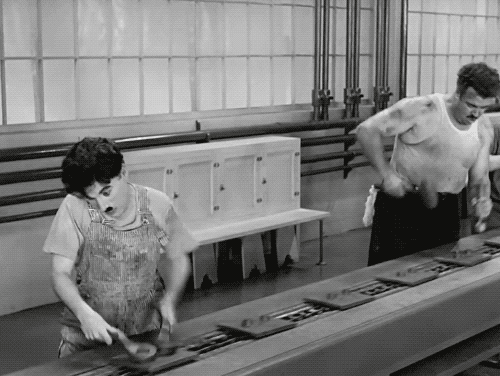Free & paid subscribers receive the exact same weekly content in their inboxes every Saturday morning. (The newsletter, vulnerable, personal, embarrassing stories, book recommendations, and whatever gifs have made me giggle.)
Considering upgrading to help myself and my editor Leona dedicate more time to The Luminist and support our current non-profit of choice: Experience Camps for grieving kids.
Retired Brigadier General Becky Halstead is a pint-sized human with the strength of a colossus.
She was the first female West Point graduate to be promoted to General Officer, as well as the first female in U.S. history to command in combat at the strategic level.

When Becky agreed to be our keynote speaker at a leadership event a few years ago, we were all eager to get a look inside the mind of this once-in-a-generation leader. She delivered, but not in the way we expected. Rather than getting into the nitty gritty of how to organize, strategize, and supervise, she focused on what got her out of bed every morning: inspiring people to be their best selves.
She shared this story, which still rings in my head two years later, “My dad asked me what I wanted to do after retirement, and I told him I wanted to be a motivational speaker. He was not impressed and shared with me that motivational speakers are entertaining but not impactful. Everyone just returns to their work and keeps doing the same thing.
“I thanked my dad and told him I no longer wanted to be a motivational speaker — I wanted to be an inspirational speaker! Because an inspirational speaker ignites action and leads to actual change.”
Over my 30+ year career in corporate America, I have listened to a lot of “inspirational” speakers.
Like Santa Claus and Christmas, peanut butter and jelly, motherhood and apple pie, keynote speakers are synonymous with corporate events.
Some of my more memorable speaker experiences include:
An adventurer helping disabled people climb to Mount Everest base camp.
A Blue Angel fighter pilot providing lessons on high-stakes teamwork.
The janitor-turned-Frito Lay exec who invented Flamin’ Hot Doritos.
And, at the time, I thought they were all full of crap. (Not Becky, she came after.)
Take the dude who helped disabled people climb to the base of Everest. While politely listening, nodding, and smiling through his speech, I was thinking, he is only doing that so he can get a freaking free ride to Everest himself!
I assumed every one of those guys was a scam. Not because they had earned my bottomless skepticism. Oh no, it wasn’t about them at all. It was about me.
I didn’t think I needed inspiration when I had will power, ambition, and a family to support. In my mind, inspiration was for idealists — aka people who needed to rely on their emotions rather than their self-motivation to get anything done.
But Becky was right. Now that I’m on the other side, it’s so clear. The mind on its own can’t come close to producing the innovation that’s possible when the heart is on board.
In the workplace we are not supposed to feel feelings — we are supposed to be robots.
Somewhere along the line, we decided that the best worker — the most efficient worker — was the logical, unfeeling worker. While I still agree that using top-down control to cool haughty emotions is generally constructive, I think we’ve taken “mind over matter” a little too far. Because where do we source our values, our priorities, our passions if not from our emotions?
And where do we source the inner fire necessary to effect change, big change, if not the things that we love and care about?
I’m going to say something I can’t prove but I’m quite sure of: very few people do great things with logic and willpower alone. Though fortitude and grit are involved in every impactful endeavor, we need a reason to keep going. And as logically sound as a reason may be, if it doesn’t ignite the illogical passion of the heart, we’ll run out of steam.
This is the difference between motivation and inspiration that Becky’s father was getting at.
We are inundated with good, even great, reasons to be motivated (paychecks, promotions, or the flip side, failure, punishment, embarrassment). To the point that it’s clear we need something more.
We need to be driven from the inside, not just the outside.
Inspiration is so often visualized as spark.
I think it's the spark that lights up the heart. The heart is already an engine after all — pumping oxygen molecules into the furnaces of our cells so they can be converted into the heat of life.
Our minds feel cold in comparison. Their strength lies not in passion, but in discipline, in reason, in solving problems. Thus, when we try to complete a project solely from the head, we have to rely on these sterile tools. When we involve the heart in a mission (or better yet, are lucky enough to be able to let the heart pick the mission), we do more than add tools to our tool belt. We add fuel.
That’s right, my corporate comrades, my workaholic besties, my willpower weightlifters, I’m talking to you.
Loosening the strictures, the contractions, the bungee cords tying down our emotions so we actually feel something seems risky. It requires vulnerability. We might get hurt. In fact, we probably will. But we’ll also get access to our own life force. We’ll be a body, mind, and spirit aligned.
You might have heard of the hospital janitor who sees his job as saving lives. Pre-Mike’s death, this anecdote irritated me. The janitor himself was sweet enough, but I didn’t want people using his story as permission to pretend they were doing good when they just weren’t. I was listening with my cynical head instead of my feeling heart.
For better or worse, the universe knew exactly which of my buttons to push to flip that script. Turns out there actually was a life-expanding message under what I was interpreting as narcissistic fodder:
Finding a mission your heart can get behind saturates even the most mundane actions with meaning and purpose. Or as Simon Sinek puts it, “Working hard for something we don’t care about is called stress. Working hard for something we love is called passion.”
I asked my in-house guru what she thought inspiration was.
Kendall’s response: “Inspiration is organic. It just happens to you, you don’t control it.”
Maybe that’s the biggest lesson of all… and the reason we fight it so.
Allowing things we can’t control to influence our life scares us — even when those things are the emotions inside of us. Even when those emotions are pleasant. Even when they are trying to show us where we’ll find fulfillment!
But I think this is where our endlessly problem-solving minds can help. They can convince us that it’s worth it. Find whatever argument you need to allow inspiration — and the emotions that come with it — in.
Personally, Mike’s death shattered my illusion of control. And with that laying in a heap at my feet, it was much easier to welcome my “uncontrollable” emotions into my work and into my life in general. In the last six years, I have created more meaningful milestones than I had in the 15 before: I organized the Women’s Summit, designed and built my dream house, turned my crazy idea into a 700-subscriber newsletter, and got two kids through high school without anyone disowning anyone else.
If only Willpower Sue could see me now.
Even though I can’t ensure my life will be long, I can at least ensure that it will be full.
Full of passion, full of meaning, full of reasons to bounce out of bed in the morning, inspired to make a difference in the world.
With all my heart,
If you resonated with this post and want more, check out these:
Post #3: What are we actually afraid of? Why dissecting our fears around death & dying is key to living a better life.
Post #9: Life beyond the Immaculate Reception. What we can learn from a Hall-of-Fame football veteran about leaving a legacy greater than our accomplishments.
Post #12: How I became a heart-seeking missile (in a good way). The epic power of our hearts to take loss and turn it into even more love.
Post #13: We are not islands. Releasing the myths of isolation and avoidance.
Post #29: Learning from laughter to trust my tears. When we feel, we heal.










Great read this morning!
Inspiration > Motivation. 100%. And you prove that, Sue. (Also, the janitor did not invent Flamin' Hot; and all the producers were aware of that as they proceeded with making the film.) xo
https://www.latimes.com/business/story/2021-05-16/flamin-hot-cheetos-richard-montanez
https://www.latimes.com/california/story/2023-06-13/flamin-hot-movie-cheetos-eva-longoria